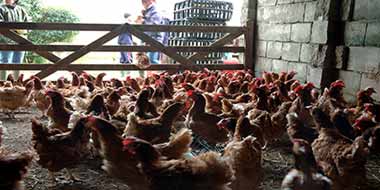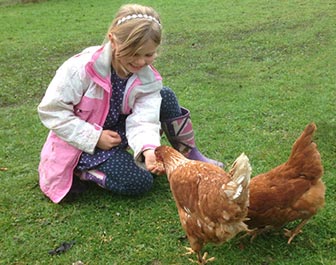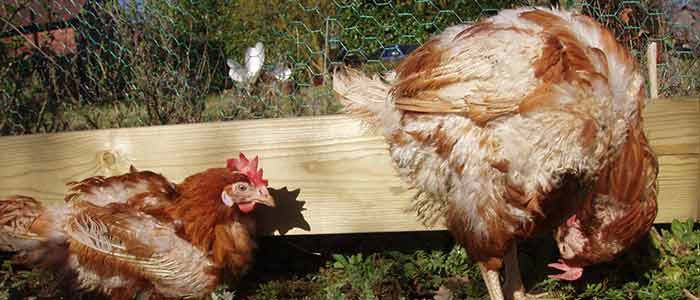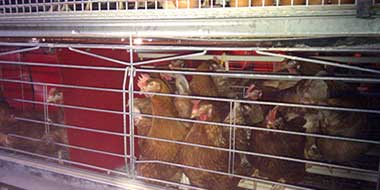
Ex-Battery Hens For Sale
Where to find ex-commercial or ex-battery hens for sale, usually for very modest donations from several rehoming organisations across the UK.
Home > Rehoming Battery Hens

Articles and guides about rehoming battery hens.
Ex-commercial hens are often referred to as ex-battery hens, although the UK banned battery cages and introduced larger, enriched colony cages in 2012. These days, organisations rehoming battery hens can rescue them from various farming systems, including barn, free-range and colony cage systems. Sadly, hens are only commercially viable for 18 months at the most.
Commercial egg production units need laying hens to be at the peak of their production to be viable. Pullets (young hens) come into lay, and artificial lighting will keep them laying, typically for 72 weeks, whatever the season.
By contrast, hens in our back garden, under natural daylight, will moult during the autumn as the daylight hours decrease. They will rest from laying while replacing their feathers; however, their commercial counterparts continue to lay eggs under their continuous lighting regime. Laying eggs for such a long time puts enormous demands on a hens body, and eventually, production rates start to fall off slightly.
Ex-battery hens are worth very little, often ending up in pet food or cheaper products containing chicken, such as pies. Unless, of course, we rehome them! And thousands of people are doing just that through battery hen rehoming organisations who purchase hens from British farmers and sell them back garden chicken keepers. Recycling at its very best!
This category aims to provide you with everything you need to know about rehoming battery hens so they can have a happy free-range retirement.
From finding a rehoming organisation for ex-commercial hens near you to finding out how to look after your girls to help them be happy and healthy in their free-range retirement.

Where to find ex-commercial or ex-battery hens for sale, usually for very modest donations from several rehoming organisations across the UK.

In this article, Jo shares her tips on rehoming ex-battery hens so you can learn more about this rewarding and life-enhancing experience.

Frequently Asked Questions: from coop and run size, what you’ll need to buy and feed these special ladies, and other general care questions new owners have about rehoming battery hens.

Considering what they have been through, ex-battery hens don’t usually have too many health problems. Battery hens are vaccinated against most of the serious poultry

Re-homing a few ex battery hens is an incredibly rewarding experience. Battery hens have never been able to express some of their most natural behaviours;

The British Hen Welfare Trust has rescued and re-homed over 120’000 ex-battery hens (as of January 2009), that is hens that have reached the end
To be commercially viable, battery hens must produce a large number of eggs in a short time. Many of them that produce ‘Cage Eggs’ are kept in confined spaces and don’t see daylight. Before 18 months old, they are replaced. If they aren’t rehomed, they get slaughtered.

For those of us that raise and nurture our own hens, the world of intensive chicken farming is a million miles away. But for the

In January 2012, the barren battery hen cage ban came into force. In this article, Jo takes a look at the new enriched colony cages.

So what has life been like for the hens you re-home? Well, we have all heard about the dreaded battery cage that typically houses 4

The A-Z of all 93 standardised breeds plus information on Hybrids which are ideal for beginners.

General articles, guides, and information about raising backyard chickens at home or on an allotment.

Articles about incubating, hatching eggs and brooding your baby chicks.

From finding ex-battery hens to caring for their extra needs during Free Range retirement.

Articles on breeding chickens, including more advanced topics on the genetics of poultry.